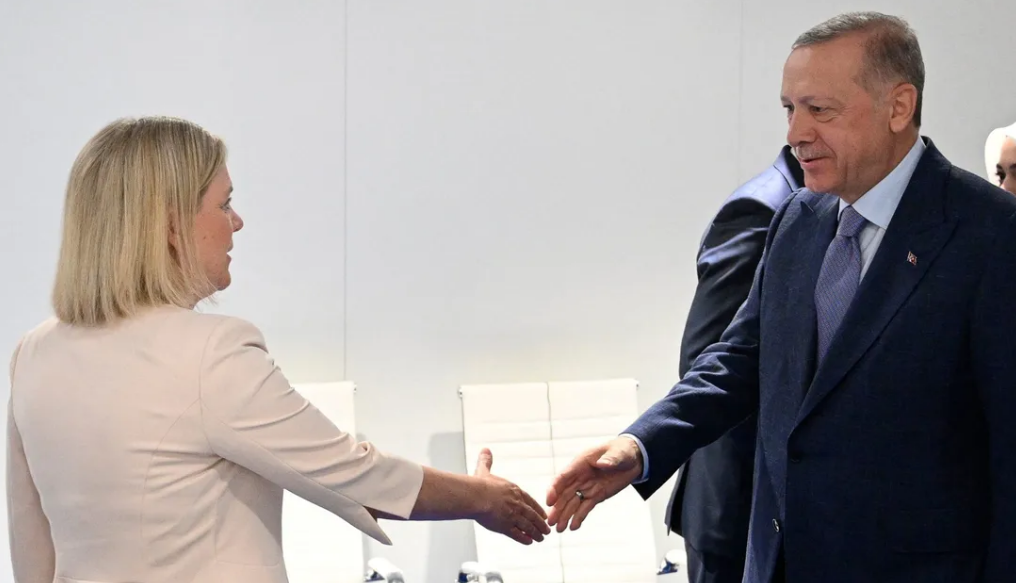Turkey has lifted its objection to the NATO membership applications by Finland and Sweden, paving the way for the two countries to join the military alliance.
The three countries signed a memorandum of understanding in Madrid on Tuesday evening, ahead of a summit of NATO leaders.
Russia’s invasion of Ukraine has prompted a shift in public opinion across northern Europe toward NATO, leading Helsinki and Stockholm to formally apply for membership in mid-May. But the Turkish leadership, citing concerns over the countries’ alleged support for Kurdish groups and arms embargoes, blocked the process.
On Tuesday, following weeks of talks, the three countries reached a deal, clearing the biggest hurdle holding up Finland and Sweden’s NATO bids. The progress is a blow to Russia’s stated ambition of rolling back NATO’s growth through its war in Ukraine.
“In NATO, we have always shown that whatever our differences, we can always sit down, find common ground and resolve any issues,” NATO Secretary-General Jens Stoltenberg proclaimed at a press conference following the signing ceremony.
“Our joint memorandum underscores the commitment of Finland, Sweden and Türkiye to extend their full support against threats to each other’s security,” Finnish President Sauli Niinistö said in a statement. “Us becoming NATO allies will further strengthen this commitment.”
The deal has several components, the NATO chief said.
For starters, he said, Helsinki and Stockholm are committing “to fully support Türkiye against threats to its national security.”
Stoltenberg singled out the PKK, a Kurdish militant group that Turkey, the U.S. and the EU have classified as a terrorist organization. Both countries will work on “cracking down on PKK activities,” he added, and will enter “an agreement with Türkiye on extradition.”
The two Nordic countries will also “have no arms embargo” against Turkey, Stoltenberg noted.
Beyond the points Stoltenberg highlighted, the memorandum text revealed that Finland and Sweden had also agreed not to “not provide support” to YPG, a Kurdish militia in Syria, nor to the movement affiliated with the exiled cleric Fethullah Gülen. The U.S. has not placed the terrorist label on these entities.
And in a passage likely to stoke some controversy in Finland and Sweden, the memorandum pledges that the two countries “will address Turkiye’s pending deportation or extradition requests of terror suspects expeditiously and thoroughly,” clarifying that it must be done in line with European treaties.
As a result of Ankara’s move, NATO leaders gathering in Madrid can now make a formal decision on Wednesday to invite Finland and Sweden to join the alliance.
Then the process will move to each individual NATO country, where all 30 parliaments must ratify the expansion. Because of those logistics, Stoltenberg declined to put a specific timeline on the two countries formally joining the alliance.
Still, Stoltenberg conveyed confidence that NATO would soon grow and touted the “advanced, well-developed” military capabilities both countries would bring to the alliance.
Finland and Sweden are both strategically located for NATO. Finland shares a long border with Russia in the north and Sweden sits across the Baltic Sea from Estonia, Latvia and Lithuania — three countries pressing for more NATO support in the face of Russian threats.
“It will really strengthen our presence in that part of the world,” Stoltenberg said.
Politico
